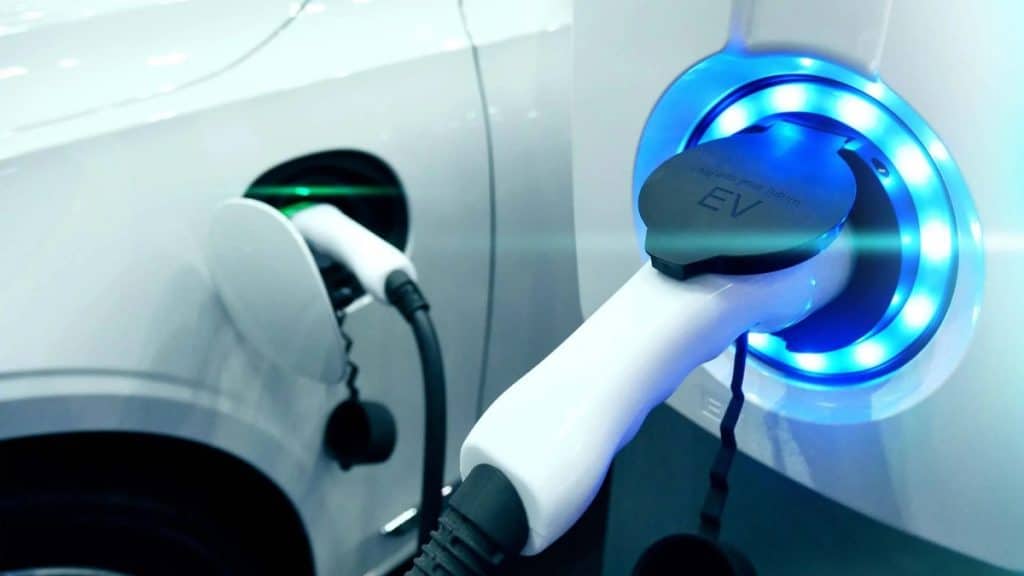As we navigate through the green revolution, the shift towards electric vehicles (EVs) marks a significant stride in our journey towards sustainability. This eco-friendly transition is accompanied by the proliferation of EV charging stations, a critical infrastructure that supports the growing number of electric vehicles on our roads. However, as with any technological advancement, new challenges emerge. Among these, the cybersecurity of EV charging stations is increasingly under scrutiny, with a specific concern: the potential for these conveniences to become hotspots for identity theft.
The Vulnerability of EV Charging Stations
EV charging stations facilitate the transfer of electrical energy into an electric vehicle’s battery. This process is not merely a physical transaction of power but also involves a complex exchange of information between the vehicle, the charging station, and often a central management system. This information exchange is crucial for billing, monitoring charging status, and maintaining the infrastructure’s efficiency.
The very systems designed to ensure a seamless and user-friendly experience can, if not adequately protected, become gateways for unauthorized access. Cybercriminals can exploit these vulnerabilities to launch attacks ranging from denial of service (disrupting the charging process) to more sinister motives like identity theft.
The types of data at risk include personal information such as names, addresses, and contact details, often required for account creation and service personalization. This information is a gold mine for cybercriminals, who can use it for unauthorized purchases, create fake identities, or even sell it on the dark web.
Methods of Attack
The methods of attack are varied, each exploiting different vulnerabilities to gain unauthorized access to personal and financial information. Here’s a brief overview of common tactics:
- Skimming Devices: Similar to those used on ATMs, skimming devices can be clandestinely installed on EV charging stations. These devices capture payment information from unsuspecting users when they swipe their cards to initiate a charge.
- Wi-Fi Hacking: Many EV charging stations offer Wi-Fi connectivity for user convenience. Hackers can exploit vulnerabilities in these networks to intercept communications between the user’s device and the charging station, capturing sensitive data in the process.
- Malware: Cybercriminals may introduce malware into the charging station’s software, either through physical access or remote infiltration. This malware can then record and transmit user data to the attackers.
Real-World Examples
While specific, publicly disclosed instances of attacks on EV charging stations are not widely reported, the potential parallels with other industries are clear.
For example, in the retail sector, skimming devices have been used to compromise millions of credit card details.
Wi-Fi hacking has been demonstrated at public hotspots, where attackers create malicious networks to mimic legitimate ones, tricking users into connecting and exposing their information.
These methods underscore the importance of robust cybersecurity measures for EV charging stations, highlighting the need for industry-wide standards and user vigilance to protect against these evolving threats.
The Impact of Identity Theft on Individuals
Identity theft extends far beyond the immediate inconvenience of unauthorized transactions; its repercussions can deeply affect individuals on multiple levels. Here’s an outline of the potential consequences for victims of identity theft:
- Financial Loss: The most immediate and obvious impact of identity theft is financial loss. Victims may find unauthorized charges on their accounts, face drained bank accounts, or even be held responsible for fraudulent loans taken out in their names.
- Credit Score Damage: The stealthier damage from identity theft often manifests in the victim’s credit history. Unpaid bills, loans, or credit opened by thieves can severely damage credit scores, making it difficult for victims to secure loans, housing, or employment.
- Emotional and Psychological Impact: Beyond the tangible financial repercussions, identity theft can inflict significant emotional distress. Victims often report feelings of violation, mistrust, anxiety, and a sense of helplessness. The process of restoring one’s identity and financial health can be lengthy and frustrating, adding to the stress and emotional toll.
Recognizing these potential consequences is the first step in fostering a culture of security and vigilance against such threats.
Steps to Enhance Security
Enhancing the security of EV charging stations is a multifaceted endeavor that requires the collaborative efforts of various stakeholders. Here are targeted recommendations and best practices aimed at bolstering defenses against identity theft:
For Governments
Regulation and Standards: Implement strict regulations and standards for cybersecurity in the design, installation, and operation of EV charging stations.
Public Awareness Campaigns: Launch campaigns to educate the public about the risks of identity theft at EV charging stations and how to protect themselves.
For Manufacturers
Robust Security Features: Incorporate advanced security features into charging stations, including encryption, secure authentication methods, and real-time monitoring for suspicious activities.
Regular Software Updates: Ensure charging stations receive regular software updates to patch vulnerabilities and protect against the latest cyber threats.
For EV Owners
Use Secure Payment Methods: Opt for contactless payments, mobile payments, or credit cards with strong fraud protection policies rather than debit cards.
Stay Vigilant: Be aware of any suspicious activities around charging stations, such as unfamiliar devices attached to the machine or unusual prompts on the screen.
By adopting these recommendations, stakeholders can significantly enhance the security of EV charging stations, mitigating the risk of identity theft and ensuring a safer environment for EV owners.
Conclusion
The journey toward a greener and more sustainable future is fraught with challenges, yet it is also filled with opportunities for innovation and collaboration. As we navigate this path, let us remain steadfast in our commitment to safeguarding our digital and physical realms, ensuring that the promise of electric vehicles is realized in its fullest, most secure form. Together, we can turn the tide against identity theft at EV charging stations, securing a safer, more sustainable future for all.
